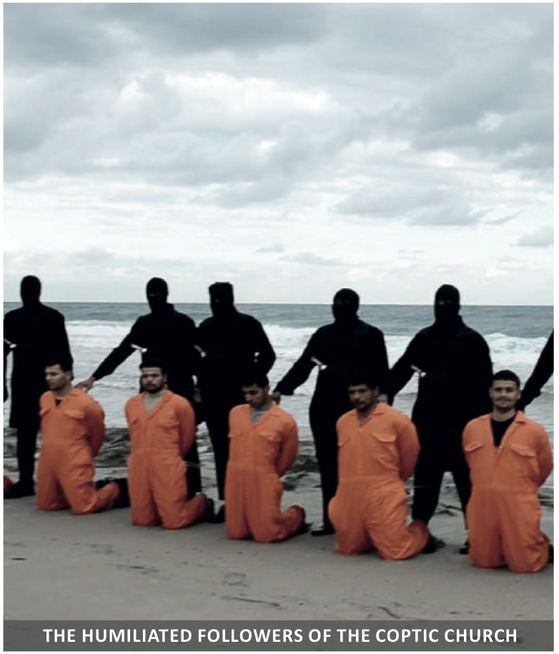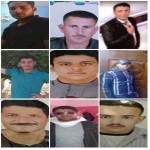There is zero strategy in the Authorization of Military Force the White House sent electronically to Congress today. At the core of this feeble document is all deference to Iran and the building issues with Russia. Yet the most unspoken issue is Barack Obama taking a swipe at GW Bush.
The Obama administration’s draft language and transmittal letter, obtained from congressional sources, appears below:
TO THE CONGRESS OF THE UNITED STATES:
The so-called Islamic State of Iraq and the Levant (ISIL) poses a threat to the people and stability of Iraq, Syria, and the broader Middle East, and to U.S. national security. It threatens American personnel and facilities located in the region and is responsible for the deaths of U.S. citizens James Foley, Steven Sotloff, Abdul-Rahman Peter Kassig, and Kayla Mueller. If left unchecked, ISIL will pose a threat beyond the Middle East, including to the United States homeland.
I have directed a comprehensive and sustained strategy to degrade and defeat ISIL. As part of this strategy, U.S. military forces are conducting a systematic campaign of airstrikes against ISIL in Iraq and Syria. Although existing statutes provide me with the authority I need to take these actions, I have repeatedly expressed my commitment to working with the Congress to pass a bipartisan authorization for the use of military force (AUMF) against ISIL. Consistent with this commitment, I am submitting a draft AUMF that would authorize the continued use of military force to degrade and defeat ISIL.
My Administration’s draft AUMF would not authorize long-term, large-scale ground combat operations like those our Nation conducted in Iraq and Afghanistan. Local forces, rather than U.S. military forces, should be deployed to conduct such operations. The authorization I propose would provide the flexibility to conduct ground combat operations in other, more limited circumstances, such as rescue operations involving
U.S. or coalition personnel or the use of special operations forces to take military action against ISIL leadership. It would also authorize the use of U.S. forces in situations where ground combat operations are not expected or intended, such as intelligence collection and sharing, missions to enable kinetic strikes, or the provision of operational planning and other forms of advice and assistance to partner forces.
Although my proposed AUMF does not address the 2001 AUMF, I remain committed to working with the Congress and the American people to refine, and ultimately repeal, the 2001 AUMF.
Enacting an AUMF that is specific to the threat posed by ISIL could serve as a model for how we can work together to tailor the authorities granted by the 2001 AUMF.
I can think of no better way for the Congress to join me in supporting our Nation’s security than by enacting this legislation, which would show the world we are united in our resolve to counter the threat posed by ISIL.
The White House,
JOINT RESOLUTION
To authorize the limited use of the United States Armed Forces against the Islamic State of Iraq and the Levant.
***
Whereas the terrorist organization that has referred to itself as the Islamic State of Iraq and the Levant and various other names (in this resolution referred to as ‘”ISIL’”) poses a grave threat to the people and territorial integrity of Iraq and Syria, regional stability, and the national security interests of the United States and its allies and partners;
Whereas ISIL holds significant territory in Iraq and Syria and has stated its intention to seize more territory and demonstrated the capability to do so;
Whereas ISIL leaders have stated that they intend to conduct terrorist attacks internationally, including against the United States, its citizens, and interests;
Whereas ISIL has committed despicable acts of violence and mass executions against Muslims, regardless of sect, who do not subscribe to ISIL’s depraved, violent, and oppressive ideology;
Whereas ISIL has threatened genocide and committed vicious acts of violence against religious and ethnic minority groups, including Iraqi Christian, Yezidi, and Turkmen populations;
Whereas ISIL has targeted innocent women and girls with horrific acts of violence, including abduction, enslavement, torture, rape, and forced marriage; Whereas ISIL is responsible for the deaths of innocent United States citizens, including James Foley, Steven Sotloff, Abdul-Rahman Peter Kassig, and Kayla Mueller;
Whereas the United States is working with regional and global allies and partners to degrade and defeat ISIL, to cut off its funding, to stop the flow of foreign fighters to its ranks, and to support local communities as they reject ISIL;
Whereas the announcement of the anti-ISIL Coalition on September 5, 2014, during the NATO Summit in Wales, stated that ISIL poses a serious threat and should be countered by a broad international coalition;
Whereas the United States calls on its allies and partners, particularly in the Middle East and North Africa that have not already done so to join and participate in the anti-ISIL Coalition;
Whereas the United States has taken military action against ISIL in accordance with its inherent right of individual and collective self-defense;
Whereas President Obama has repeatedly expressed his commitment to working with Congress to pass a bipartisan authorization for the use of military force for the anti-ISIL military campaign;
and Whereas President Obama has made clear that in this campaign it is more effective to use our unique capabilities in support of partners on the ground instead of large-scale deployments of U.S. ground forces:
Now, therefore, be it Resolved by the Senate and House of Representatives of the United States of America in Congress assembled, That
SECTION 1. SHORT TITLE.
This joint resolution may be cited as the “Authorization for Use of Military Force against the Islamic State of Iraq and the Levant.”
SEC. 2. AUTHORIZATION FOR USE OF UNITED STATES ARMED FORCES.
(a) AUTHORIZATION.—The President is authorized, subject to the limitations in subsection (c), to use the Armed Forces of the United States as the President determines to be necessary and appropriate against ISIL or associated persons or forces as defined in section 5.
(b) WAR POWERS RESOLUTION REQUIREMENTS.— (1) SPECIFIC STATUTORY AUTHORIZATION.—Consistent with section 8(a)(1) of the War Powers Resolution (50 U.S.C. 1547(a)(1)), Congress declares that this section is intended to constitute specific statutory authorization within the meaning of section 5(b) of the War Powers Resolution (50 U.S.C. 1544(b)). (2) APPLICABILITY OF OTHER REQUIREMENTS.—Nothing in this resolution supersedes any requirement of the War Powers Resolution (50 U.S.C. 1541 et seq.).
(c) LIMITATIONS.— The authority granted in subsection (a) does not authorize the use of the United States Armed Forces in enduring offensive ground combat operations.
SEC. 3. DURATION OF THIS AUTHORIZATION. This authorization for the use of military force shall terminate three years after the date of the enactment of this joint resolution, unless reauthorized.
SEC. 4. REPORTS.
The President shall report to Congress at least once every six months on specific actions taken pursuant to this authorization.
SEC. 5. ASSOCIATED PERSONS OR FORCES DEFINED.
In this joint resolution, the term ‘‘associated persons or forces’’ means individuals and organizations fighting for, on behalf of, or alongside ISIL or any closely-related successor entity in hostilities against the United States or its coalition partners.
SEC. 6. REPEAL OF AUTHORIZATION FOR USE OF MILITARY FORCE AGAINST IRAQ. The Authorization for Use of Military Force Against Iraq Resolution of 2002 (Public Law 107– 243; 116 Stat. 1498; 50 U.S.C. 1541 note) is hereby repealed.
But what about Libya, Afghanistan or Pakistan?
The Islamic State has expanded its presence in the failed state of Libya, and if not confronted, the terror group may be able to gain strategic territory in its quest to form an Islamic Caliphate, according to the Washington Institute’s Andrew Engel. While the United States and its allies are focused on Syria and Iraq, IS (commonly referred to as ISIL or ISIS) has its eyes beyond that fight.

The report, titled The Islamic State’s Expansion in Libya, says Libya’s ex-ambassador to the Emirates Aref Ali Nayed is worried that if Washington does not act, IS will use Libya to threaten Europe. The IS has increased its physical and media presence in the last three months. A local terrorist organization, the Islamic Youth Shura Council (IYSC), has pledged its loyalty to IS.
“ISIS leader Abu Bakr al-Baghdadi recognized the Libyan ‘provinces’ of Barqa (Cyrenaica), Tripolitania, and Fezzan as belonging to his self-styled ‘caliphate,’” Engel said.
Adding to concerns, IS is winning the battle to be the dominant terrorist group in the region, just as it is in Iraq and Syria. Al-Barqawi has said that the terrorist organization would like to remove the borders of North African countries Tunisia, Libya, and Egypt to form a province similar to the one they are building in Syria and Iraq, which they call the “Euphrates Province.”





